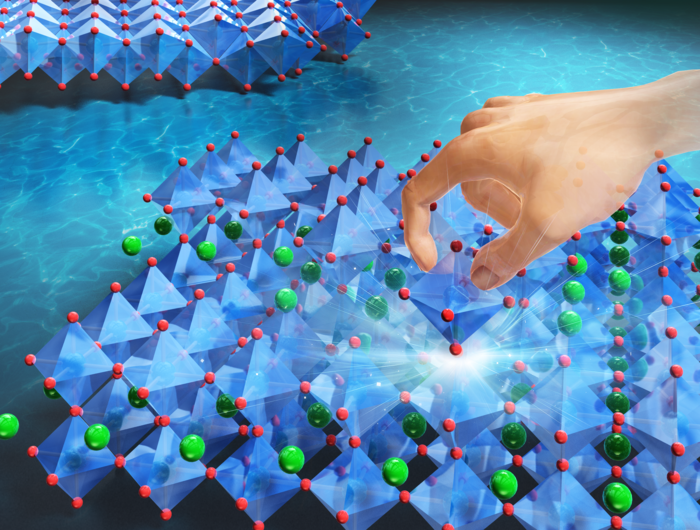
Creation of the thinnest freestanding film with ferroelectric properties ever opens the door to smaller, more efficient devices. Image Credit: Dr Minoru Osada.
Since thickness is connected to functionality, their findings set the stage for smaller, highly effective devices. The study was reported in the journal Advanced Electronic Materials.
The creation of ever-thinner materials with new electronic functions is known to be a highly competitive area of research. Such devices are significant in ferroelectrics, materials with a polarization that an electric field could reverse. This potential to reverse polarization makes such materials beneficial in memory and vibrational power generation.
But as the materials in such devices turn out to be smaller, they exhibit sudden properties that perplex their industrial use. A big issue is the “size effect”, as when the thickness of the material is decreased to a few nm, its ferroelectric properties vanish.
A research group from Nagoya University’s Department of Materials Chemistry and the Institute of Materials and Systems for Sustainability (IMASS), headed by Professor Minoru Osada (he/him), has been successful in synthesizing defect-free BaTiO3 nanosheets with ferroelectric properties at a thickness that measures around of 1.8 nm utilizing an aqueous solution process.
The outcome is the thinnest free-standing film that has ever been made. Even though it is thin, the film displays ferroelectric properties, highlighting a significant discovery in the fabrication of thin and ferroelectrically active films.
However, for BaTiO3, a typical ferroelectric material, it is difficult to synthesize nanosheets by the conventional synthetic method. Therefore, it was necessary to develop a new synthetic method. Generally, the synthesis of BaTiO3 requires a calcination process that requires temperatures of 1000 °C or higher.
Minoru Osada, Professor, Nagoya University
Osada added, “In contrast, we synthesized BaTiO3 nanosheets at a low temperature of 60 °C using our process. Since the thickness of the film can be controlled using this method by varying the reaction time, the synthesis of nanosheets with two to six lattices was achieved.”
“If nanosheets with a thickness of a few nanometers can be synthesized in ferroelectrics, new properties, and applications are expected to be discovered. Our findings should provide an important technique for the miniaturization of devices such as memories and capacitors,” Osada continued.
As existing technologies have already reached their limits both in terms of both materials and processes, techniques such as ours are essential. They offer a dramatic increase in performance and technological innovation by the means of new materials and processes.
Minoru Osada, Professor, Nagoya University
Journal Reference
Hagiwara, K., et al. (2023) Molecularly Thin BaTiO3 Nanosheets with Stable Ferroelectric Response. Advanced Electronic Materials. doi.org/10.1002/aelm.202201239.